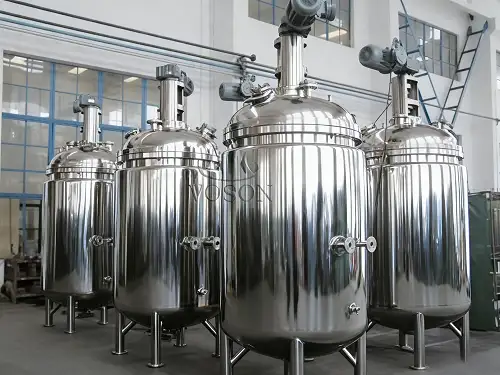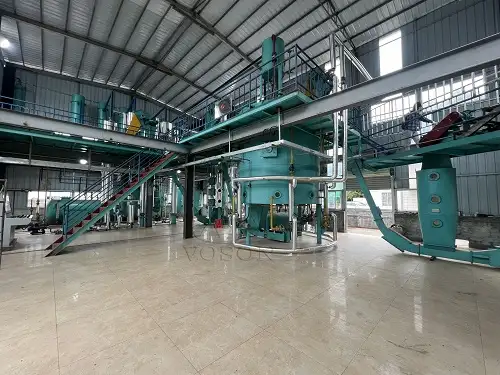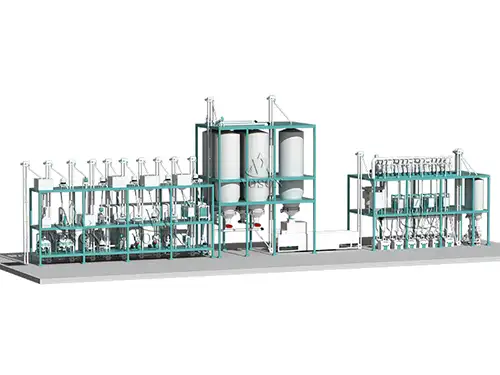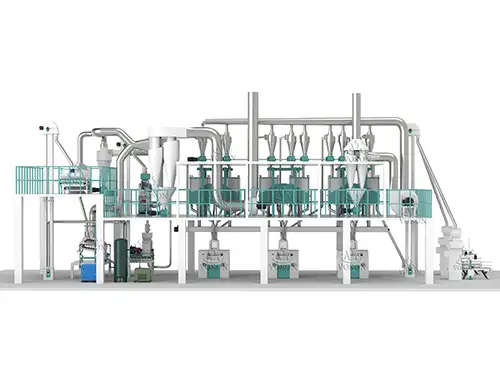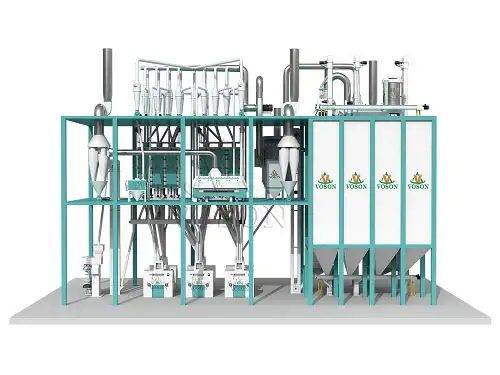The crystallization tank is a key piece of equipment in the edible oil refining process, especially during winterization and fractionation. It is designed to provide a controlled low-temperature environment where specific triglycerides crystallize and separate from liquid oil. This process improves oil clarity, stability, and quality, making the crystallization tank an essential choice for producers of sunflower oil, cottonseed oil, corn oil, palm oil, and other edible oils that require winterization or fractionation.
Why Use a Crystallization Tank?
Many vegetable oils contain waxes or high-melting-point triglycerides that can cause turbidity or sediment when the oil is stored at lower temperatures. For example, sunflower oil often contains waxes that make it appear cloudy, while palm oil requires fractionation to obtain liquid olein and solid stearin. The crystallization tank provides a reliable solution by:
- Maintaining stable cooling rates to promote uniform crystal growth.
- Offering precise temperature control to achieve desired separation results.
- Ensuring product consistency for both small-scale refining and large industrial plants.
By applying this process, refined oils gain better transparency, longer shelf life, and improved commercial value.
Design Features and Advantages
Voson’s crystallization tanks are engineered with a focus on efficiency, durability, and adaptability to different refining capacities. Key features include:
- High-efficiency cooling system: Equipped with jacketed walls or coil structures to allow chilled water or refrigerant circulation, ensuring gradual and controlled cooling.
- Gentle agitation: Prevents crystal agglomeration and maintains uniform mixing, resulting in consistent crystal size distribution.
- Insulated construction: Reduces energy loss and maintains a stable cooling environment, lowering operational costs.
- Versatility: Suitable for processing sunflower oil, cottonseed oil, corn oil, palm oil, and other vegetable oils that require winterization or fractionation.
These design features make the crystallization tank a practical solution for edible oil refineries aiming to improve production efficiency and product quality.
Application in Oil Refining Process
The crystallization tank is generally applied after the oil has gone through neutralization, bleaching, and deodorization. During the winterization or fractionation step, oil is cooled under controlled conditions to allow undesirable components to crystallize. The resulting slurry is then filtered or separated, leaving a clear, refined oil.
- Sunflower oil: Removes waxes for improved clarity.
- Cottonseed oil: Eliminates waxes and high-melting fractions.
- Corn oil: Improves stability and market quality.
- Palm oil: Used in fractionation to separate olein and stearin for diverse applications in cooking oils, margarine, and confectionery.
This step is particularly important for oil producers exporting to regions with cooler climates, where storage and shelf appearance directly influence customer acceptance.
While crystallization tanks are most commonly used in small to medium-scale refining units, Voson designs can be adapted to different plant sizes. Typical processing capacities range from 20 tons/day for small refineries up to 200 tons/day for industrial-scale operations. The tank’s design can be customized to match project requirements, cooling systems, and integration with existing refining lines.


